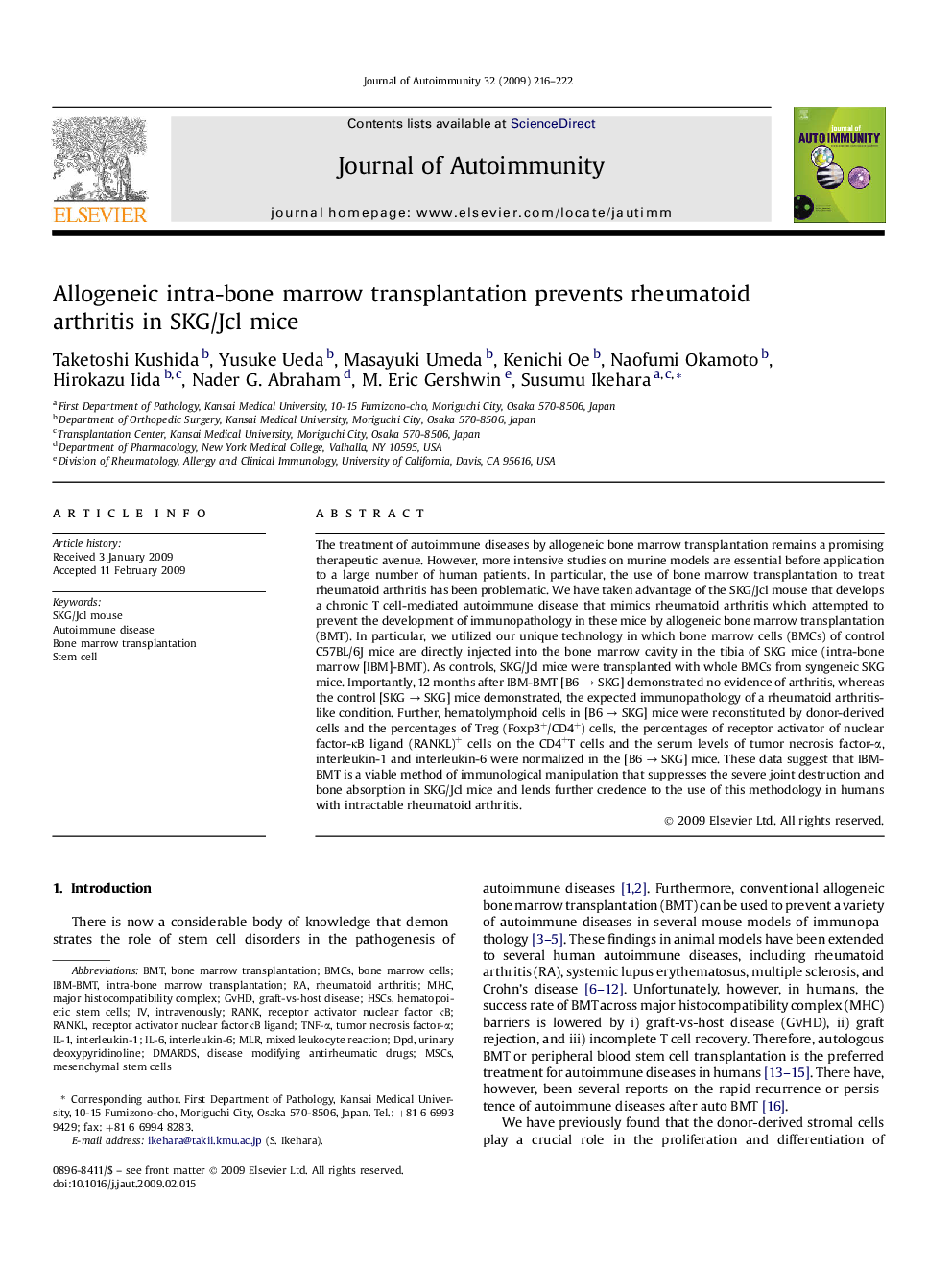| Article ID | Journal | Published Year | Pages | File Type |
|---|---|---|---|---|
| 3368329 | Journal of Autoimmunity | 2009 | 7 Pages |
The treatment of autoimmune diseases by allogeneic bone marrow transplantation remains a promising therapeutic avenue. However, more intensive studies on murine models are essential before application to a large number of human patients. In particular, the use of bone marrow transplantation to treat rheumatoid arthritis has been problematic. We have taken advantage of the SKG/Jcl mouse that develops a chronic T cell-mediated autoimmune disease that mimics rheumatoid arthritis which attempted to prevent the development of immunopathology in these mice by allogeneic bone marrow transplantation (BMT). In particular, we utilized our unique technology in which bone marrow cells (BMCs) of control C57BL/6J mice are directly injected into the bone marrow cavity in the tibia of SKG mice (intra-bone marrow [IBM]-BMT). As controls, SKG/Jcl mice were transplanted with whole BMCs from syngeneic SKG mice. Importantly, 12 months after IBM-BMT [B6 → SKG] demonstrated no evidence of arthritis, whereas the control [SKG → SKG] mice demonstrated, the expected immunopathology of a rheumatoid arthritis-like condition. Further, hematolymphoid cells in [B6 → SKG] mice were reconstituted by donor-derived cells and the percentages of Treg (Foxp3+/CD4+) cells, the percentages of receptor activator of nuclear factor-κB ligand (RANKL)+ cells on the CD4+T cells and the serum levels of tumor necrosis factor-α, interleukin-1 and interleukin-6 were normalized in the [B6 → SKG] mice. These data suggest that IBM-BMT is a viable method of immunological manipulation that suppresses the severe joint destruction and bone absorption in SKG/Jcl mice and lends further credence to the use of this methodology in humans with intractable rheumatoid arthritis.
